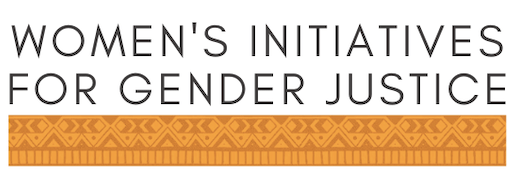Call it what it is
---
The Call it what it is campaign was launched with an event at the Assembly of States Parties (ASP) to the Rome Statute session in The Hague in December 2018, and the opening of an online survey on sexual violence. Beginning in January 2019, WIGJ focused the campaign on four main areas: survivor consultations, developing a network of civil society organisations to partner on the campaign, drafting the Civil Society Declaration on Sexual Violence, and strategic advocacy with states and the International Criminal Court (ICC). The end result was the launch of three documents in December 2019: The Civil Society Declaration on Sexual Violence, Guidelines for International Criminal Legal (ICL) practitioners, and Key Principles for Policy Makers, collectively known as The Hague Principles on Sexual Violence.
Survivor consultations
Between March and August 2019, a total of 549 survivors from 26 countries participated in consultations. Participants were asked to comment on various factors that may make an act “sexual” in nature. The aim of the consultations was to understand from survivors what to them, makes an act “an act of sexual nature”; are there (violent) acts not involving physical contact that can be called “sexual”; what elements make an act “an act of sexual nature”; what examples or acts could be considered as “acts of sexual nature”.
Participants gave fascinating insights on what can be considered “sexual”, but also identified elements that need not be present in order for an act to be considered “sexual”. For example, participants in numerous consultations indicated that an act can be “sexual” in nature even if the perpetrator neither intends to derive sexual gratification from it, nor actually derives sexual gratification from it, which has been misconstrued in the legal sphere.
Results from all consultations were used to inform the drafting of the Civil Society Declaration on Sexual Violence. Insights from survivors were critical to ensuring that the document was informed by the lived experience of survivors and reflected cultural, religious, ethnic and other considerations from across the globe.
In interacting with survivors, Women's Initiatives and its partners sought to adhere to strict ethical standards, including the Do No Harm principles. The core aim of the consultations with survivors was to include them in a meaningful way in the process of developing the Civil Society Declaration. Those who took part in the consultations were regularly updated on the progress of the campaign. Participants are informed about the aim of their input and the declaration through this statement.
Read the summary report here.
Forming civil society partnerships
During the Call it what it is campaign, Women’s Initiatives developed partnerships with 60 civil society organizations. The organizations who have joined the campaign range from large international organizations to local grassroots organizations in conflict affected countries. Many of the partners participated during the consultation phase of the campaign, and a number of organizations have begun promoting The Hague Principles in their countries. Partners were kept informed through monthly updates and will continue to engage on the rollout of The Hague Principles. Please see the full list of partners here.
